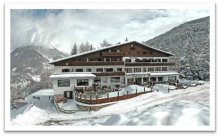
ISOCS Short Course Winter 2025
Veranstaltungsort: Bormio
CHEMICAL SENSING AND FOOD SCIENCE: FROM A PROOF OF CONCEPT TO INDUSTRIAL APPLICATIONS
Gain knowledge and develop your skills on Chemical Sensing applied to food science at the ISOCS Short Course in Bormio, Italy
This Short Course will cover topics including:
- Needs and challenges of food science
- Analytical methods and chemical sensing
- Sampling, storage and analysis of chemical samples
- Sensory analysis
- Technological challenges and data processing related to multivariate chemical sensing
- Electronic tongues: applications and data analysis
- Calibration strategies and data processing
- Cross-modality sensing
- Research presentations from participants
- Participation of industrial partners: Examples of technologies based on chemical sensing that are in the market
Speakers include:
- Patrick Mielle, International Society for Olfaction and Chemical Sensing
- Manel del Valle, U. Autonoma de Barcelona
- Andreas Güntner, ETH Zurich
- Xavier Ceto, Universitat Autonoma de Barcelona
- Sylvie Issanchou, French National Institute for Agriculture, Food, and Environment
- Maria Luisa Braunger, Brazilian Nanotechnology National Laboratory
- Tilman Sauerwald, Fraunhofer Institute IVV
- Thierry Thomas-Danguin, Research Centre for Taste, Smell, and Feeding behavior
- Gina Zeh, Fraunhofer Institute IVV
- Christian Bur, Saarland University
- Antonio Pardo, IBEC Barcelona
- Jesús Lozano, Universidad de Extremadura
- Asia Kalinichenko, Eberhard Karls University of Tuebingen
- Andrea Büttner, Fraunhofer Institute IVV
- Ayed Charfedinne, Nestlé
The Short Course will cover theoretical and practical aspects of chemical sensing applied to food science and the development of sensing technologies, data analysis, sample handling and calibration strategies. The school will bring industrial partners to present current developments in the market. The course will include lectures from renowned speakers and hands-on exercises in practical sessions. Participants are invited to present their own research and discuss with experts in the field.
Who should attend?
The Short Course will fit anyone interested in the use of chemical sensors or chemical analysis, In particular for food applications. The target audience will be PhD students, researchers, technology developers and industrial partners. This course will focus specifically on used technology, data processing, sample acquisition and storage and calibration methods.
Description
The Short Course will cover theoretical and practical aspects of chemical sensing applied to food science and the development of sensing technologies, data analysis, sample handling and calibration strategies. The school will bring industrial partners to present current developments in the market. The course will include lectures from renowned speakers and hands-on exercises in practical sessions. Participants are invited to present their own research and discuss with experts in the field.
Targeted participants
The Short Course will fit anyone interested in the use of chemical sensors or chemical analysis, In particular for food applications. The target audience will be PhD students, researchers, technology developers and industrial partners. This course will focus specifically on used technology, data processing, sample acquisition and storage and calibration methods.
The Short Course is delivered by researchers and people from the industry with international reputation.
The Short Course will review the relevant areas of chemical sensing (including chemical analysis and e-nose and e-tongue approaches) and data processing strategies applied to the development of technologies and applications. The school will put together a unique and exciting program that will provide attendees with both theoretical background and practical/lab exercises. Topics will be delivered by lectures, discussion, practical demonstration sessions and hands-on activities. Participants will need to bring their own laptops to work on the proposed exercises. Sample data and evaluation software will be shared with the attendees.
PhD students and other interested attendees will be offered to present their current research in a poster session on Friday.
The Short Course includes accommodation and the programme allows plenty of opportunities for interaction with lecturers and attendees. Theoretical lectures will take place in the morning, with the afternoon free for participants to network, consolidate their knowledge while enjoying the outdoors and the skiing. Practical sessions, exercises, hands-on demonstrations will be in the early evening, before dinner. The venue is the superb Hotel Vallechiara, located directly at the ski slopes, and the participation fees (to be communicated soon) include accommodation and meals. Participants will receive free ISOCS membership for 2025. Accompanying persons are also welcome.
The hotel has also a ski school (Anzi Ski School) and a ski rental, and they will organize ski courses at different levels (from beginners to experts) for the Short Course attendees.
Further information
Registration is open and tickets for the event covering access and accommodation with 3 meals per day from Sunday 2nd to Friday 7th (5 nights) can directly be purchased below. Please fill in the questionaire that helps us with the organization of the event.
We will organize shuttle busses from and to Milano Malpensa airport. Cost and schedule of busses will be confirmed later.
Typical accomodation for the school is in shared double (950 €) or shared multiple (850 €) rooms.
There is a limited number of availability of single roooms, because they are double rooms for single use. Upon verification of availability, single rooms can be requested by sending us an email (jordi.fonollosa.m@upc.edu) at a price of 1250 €.
Program of the Winter Course 2025 (Preliminary):
tentative_agenda Download
More information: www.olfactionsociety.org/event/isocs-short-course-winter-2025/
ISOCS
VenueAddress: Hotel Vallechiara
Loc. Ciuk
Bormio, Italy +39 0342 904381
View Venue Website